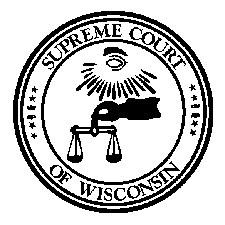Gableman Prognostication
Yesterday a three judge panel heard oral arguments on the disciplinary complaint against Justice Michael Gablemen. You can review the offending ad here and my recent discussion of it on Prawfsblawg there.
There are two rules that are pertinent. The first sentence of 60.06(3)(c) provides “[a] candidate for a judicial office shall not knowingly or with reckless disregard for the statement’s truth or falsity misrepresent the identity, qualifications, present position, or other fact concerning the candidate or an opponent.” This is the proscription that the Judicial Commission says was violated by the Mitchell ad.
But there is a second sentence. It states that “[a] candidate for judicial office should not knowingly make representations that, although true, are misleading, or knowingly make statements that are likely to confuse the public with respect to the proper role of judges and lawyers in the American adversary system.”
The difference between “shall” and “should” is significant. The preamble to the Judicial Code states that “[t]he use of “should” or “should not” in the rules is intended to encourage or discourage specific conduct and as a statement of what is or is not appropriate conduct but not as a binding rule under which a judge may be disciplined.” (emphasis supplied)


 The timing of released Wisconsin Supreme Court opinions is a popular topic this time of year among many members of the legal community. The Wisconsin Supreme Court begins hearing cases in September every year and generally hears between six and ten cases each month through April. In May, oral argument dates are set but not always used. No oral arguments are held in June, and the term officially ends at the end of June. This year, the court decided 57 cases. Of those decisions, 23 cases (40 percent) were released after the term ended, i.e., on or after July 1. In May and June, a total of 18 cases (32 percent) were released. Does it really matter that over 70 percent of the court’s cases were released either after the term ended or in the last two months of the term? I m not sure what the answer is to that question, but I do believe the Wisconsin Supreme Court should take measures to improve its appellate judicial efficiency.
The timing of released Wisconsin Supreme Court opinions is a popular topic this time of year among many members of the legal community. The Wisconsin Supreme Court begins hearing cases in September every year and generally hears between six and ten cases each month through April. In May, oral argument dates are set but not always used. No oral arguments are held in June, and the term officially ends at the end of June. This year, the court decided 57 cases. Of those decisions, 23 cases (40 percent) were released after the term ended, i.e., on or after July 1. In May and June, a total of 18 cases (32 percent) were released. Does it really matter that over 70 percent of the court’s cases were released either after the term ended or in the last two months of the term? I m not sure what the answer is to that question, but I do believe the Wisconsin Supreme Court should take measures to improve its appellate judicial efficiency.